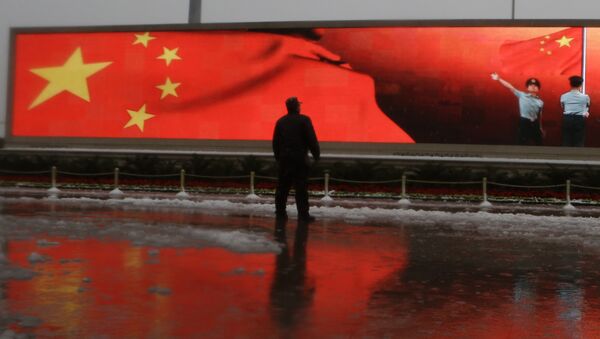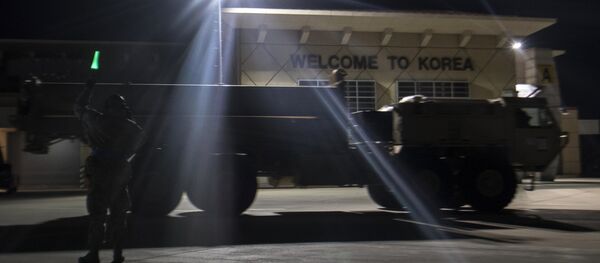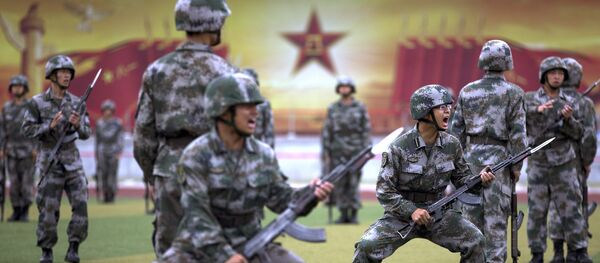Beijing has suggested that Washington, Pyongyang and Seoul de-escalate tensions in the Korean peninsula, insisting that the US and South Korea must end joint military exercises and that North Korea, simultaneously, must halt all nuclear and ballistic weapons development.
"China proposed the simultaneous suspension of North Korea's activities to develop nuclear weapons and missiles, and the suspension of large-scale military exercises," Maj. Gen. Shao Yuanming said at the VI Moscow Conference on International Security on Thursday.
Dr. Adam Broinowski, a post-doctoral research fellow at Australian National University, told Radio Sputnik that when the US has considered discussions with North Korea on a reduction of tensions in the past, Pyongyang has responded with an offer to cease or at least suspend its nuclear program.
"However, every time the US then turns on the military threats, and North Korea digs in its heels and decides that it's not safe for it to desist from its nuclear program. So, considering the consequences, it's probably the only sane solution that China really has to propose," Broinowski said.
In recent weeks, Washington has increased tension by announcing a more aggressive approach to the issue of North Korea's development of nuclear weapons.
US Vice-President Mike Pence visited the demilitarized zone between the North and the South and warned Pyongyang that "the era of strategic patience is over."
"This problem is coming to a head," national security adviser Lt. Gen. H.R. McMaster said on April 17.
"All of our options are on the table, undergoing refinement and further development."
On Wednesday, President Trump ordered the entire US Senate to attend a briefing on North Korea from Defense Secretary Jim Mattis, Secretary of State Rex Tillerson, Director of National Intelligence Dan Coats and Gen. Joseph Dunford, chairman of the Joint Chiefs of Staff. The senators discussed possible action that might be taken against North Korea.
"It seems like there's a strong consensus that they're in a kind of emergency mode where they're saying, 'this is a crisis, we have to get much tougher than we have been in the past, there's no negotiation anymore.'"
"It seems to me that the US military in particular is also trying to put pressure on Chinese economic programs such as the One Belt, One Road initiative and the attempts to forge a strong alliance with Russia in a larger, super-continent economic trade platform and new alternative economic alliance, a project with massive expenditures that extends through to Germany."
"There is one emerging economic system and one existing economic system coming into collision so I think there's a lot of military posturing in order to test and see how strong this emerging alliance might be and to see what weaknesses might appear so as to exploit them and destabilize that system."
Have you heard the news? Sign up to our Telegram channel and we'll keep you up to speed!






